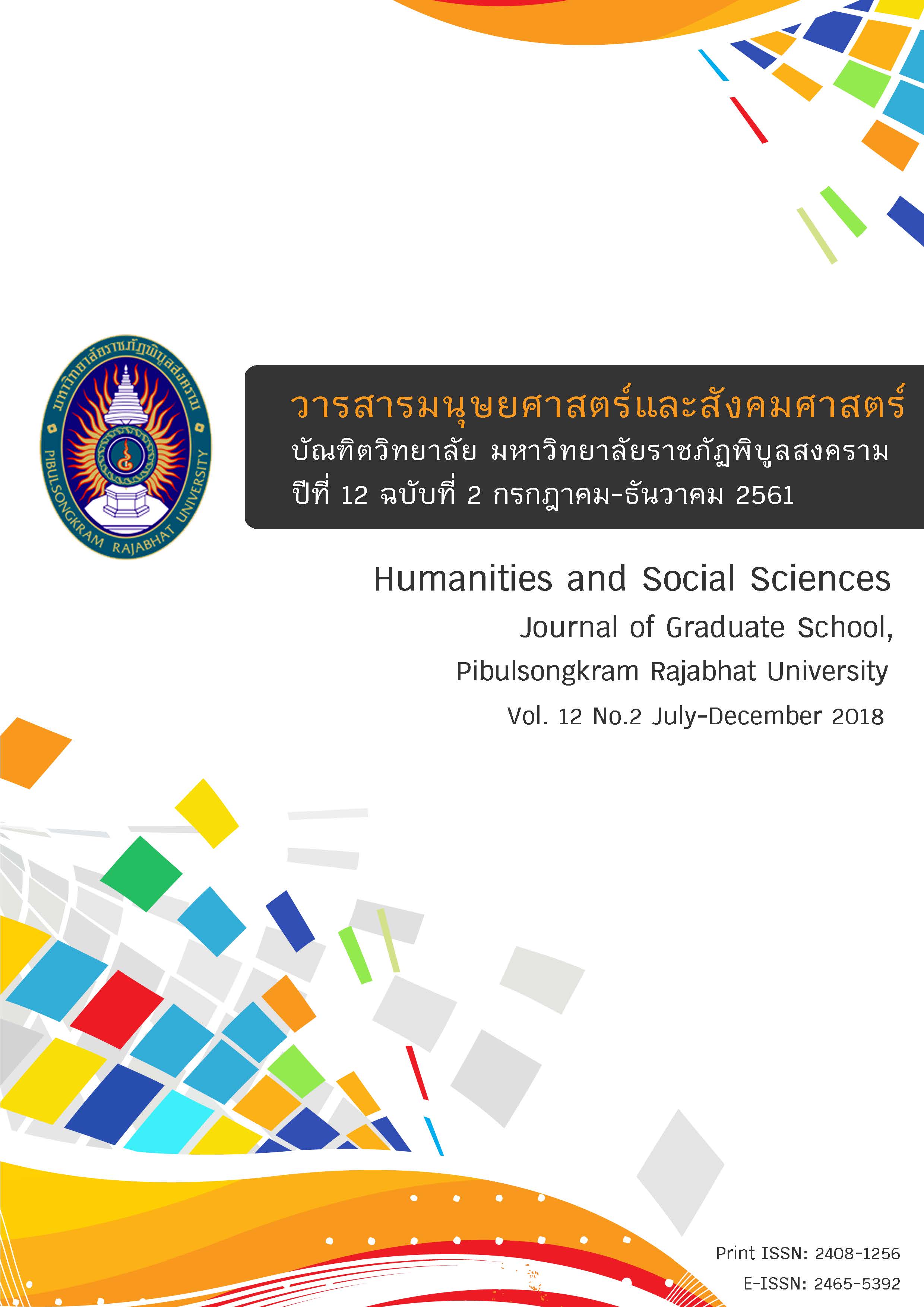The Development of Learning Management Model to Enhance the Independent Study of Students in Basic Education
Keywords:
learning management model, To enhance the independent studyAbstract
The purposes of this research were to study basic information for the development of the instructional model, to develop and assess the quality of the model, to try out and examine the results using the model, and to investigate the students’ satisfactions towards teaching and learning through the model.
There were 4 stages in the study. First, Information on learning environment, problems and needs in learning management of the 3 schools with good practices and teaching approaches were investigated. Second, the learning management model and materials were developed and checked by 9 experts and then a pilot study was conducted with 39 students. Third, the model was tried out with 38 grade 5 Anuban Bangmulnak “Rath-u-thid” school students. Fourth, students’ satisfactions towards learning were studied.
The results were as follows: 1) The information on learning environment indicated that teachers used learning management based on the guidelines of World-Class Standard School. They had problems of learning management that could not enhance the Independent study of students and need self-study learning management approach. In relation to learning process, it was found that the learning theory based on the project-based management, and self-study learning management. 2) The developed model consisted of 5 components: principles, objectives, content, learning process, measurement and evaluation. Learning process had 6 stages: orientation, reviewing, searching, constructing, applying, and reflecting. The quality of the model checked by experts was appropriate and consistent with the highest level. The results of the experiment showed that the learning through the activities following the stage was smooth. 3) The experimental group students who used the learning management model to enhance the independent study had the higher mean score than that of the controlled one with statistical significance at .01 and effect size of this model was equal to .92. 4) The level of satisfactions towards the learning management was at a highest level.
References
Deechuay, J. (2011). The development of intructional model based on constructivism and critical thinking to enhance biology concepts and knowledge construction abilities of tenth gradge students. (Doctoral dissertation). Silpakorn University. Bangkok. (In Thai)
Dick, W. & Carey, L. (1996). The systematic design of instruction. (4th ed.). New York: Longman.
Joyce, B. & Weil, M. (1986). Model of teaching. (5th ed.). London: Allyn and Bacon.
Kammanee, T. (2002). Group dynamics for working teaching and learning management. Nissin Advertising Group. (In Thai)
Kerdsomnuek, P. (2011). Development of PSQ4R model for Thai language learning of prathomsuksa 6 students. (Master’s Thesis). Mahasarakham University. Mahasarakham. (In Thai)
Luangarun, P. (2012). State and problem on academic operation of world-class standard school under the jurisdiction of the secondary education service area office 1. Electronic Journal of Education, 7(1), 261-275. (In Thai)
Office of the Basic Education Commission. (2012). Guidelines for instructional management in world-class standard school revised edition. Bangkok: The Agricultural Co-operative Federation of Thailand. (In Thai)
Phichit Primary Education Service Area Office 1. (2013). Monitoring and evaluation report education management academic year 2013. Phichit. Phichit Primary Education Service Area Office 1. (In Thai)
Phraechaiyaphum, A. (2009). Developing a constructivist science teaching model for thinking skill promotion of pratomsuksa 5 students : mixed-method methodology. (Master’s Thesis). Mahasarakham University. Mahasarakham. (In Thai)
Piyapan, P. (2012). The development of learning provision model for enhancing mathemetical problems solving ability for mathayomsuksa 3 students. (Doctoral dissertation). Srinakarinwirot University. Bangkok. (In Thai)
Pongsakornnaruwong, M. (2009). The development of instructional model based on constructivist theory to enhance knowledge construction abilities of industrial vocational students. (Doctoral dissertation). Silpakorn University. Bangkok. (In Thai)
Saksiri, N. (2010). An analysis of factors relating to the success of world-class standard school policy implementation. Silpakorn Education Research Journal. Silpakorn University, 1(2), 221-231. (In Thai)
Subsaman, P. (2006). Management of learning by students’ knowledge and discover self-knowledge. Bangkok. Chulalongkorn University. (In Thai)
Tasanagorakool, M. (2012). States, problems, and solutions in implementing the world-class standard school project and inter academic administration of pilot school under this roject. (Master’s Thesis). Chulalongkorn University. Bangkok. (In Thai)
Wade, E. G. (1995). A study of the effects of a constructivist-base mathematics problem-solving instructional program on the attitudes, self-confidence, and achievement of post-fifth–grade students. In Dissertation Abstracts International, 55(11), 3411A.
Downloads
Published
How to Cite
Issue
Section
License
บทความหรือข้อคิดเห็นใดใดที่ปรากฏในวารสารมนุษยศาสตร์และสังคมศาสตร์ มหาวิทยาลัยราชภัฏพิบูลสงครามเป็นวรรณกรรมของผู้เขียน ซึ่งบรรณาธิการไม่จำเป็นต้องเห็นด้วย บทความที่ได้รับการตีพิมพ์เป็นลิขสิทธิ์ของวารสารมนุษยศาสตร์และสังคมศาสตร์ มหาวิทยาลัยราชภัฏพิบูลสงคราม







